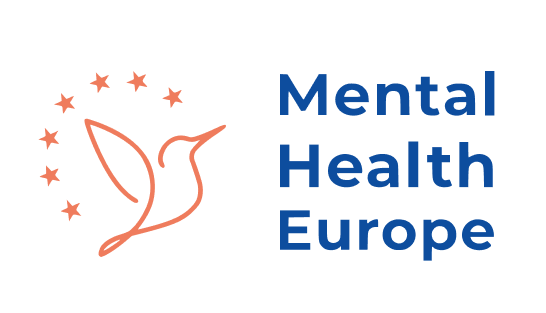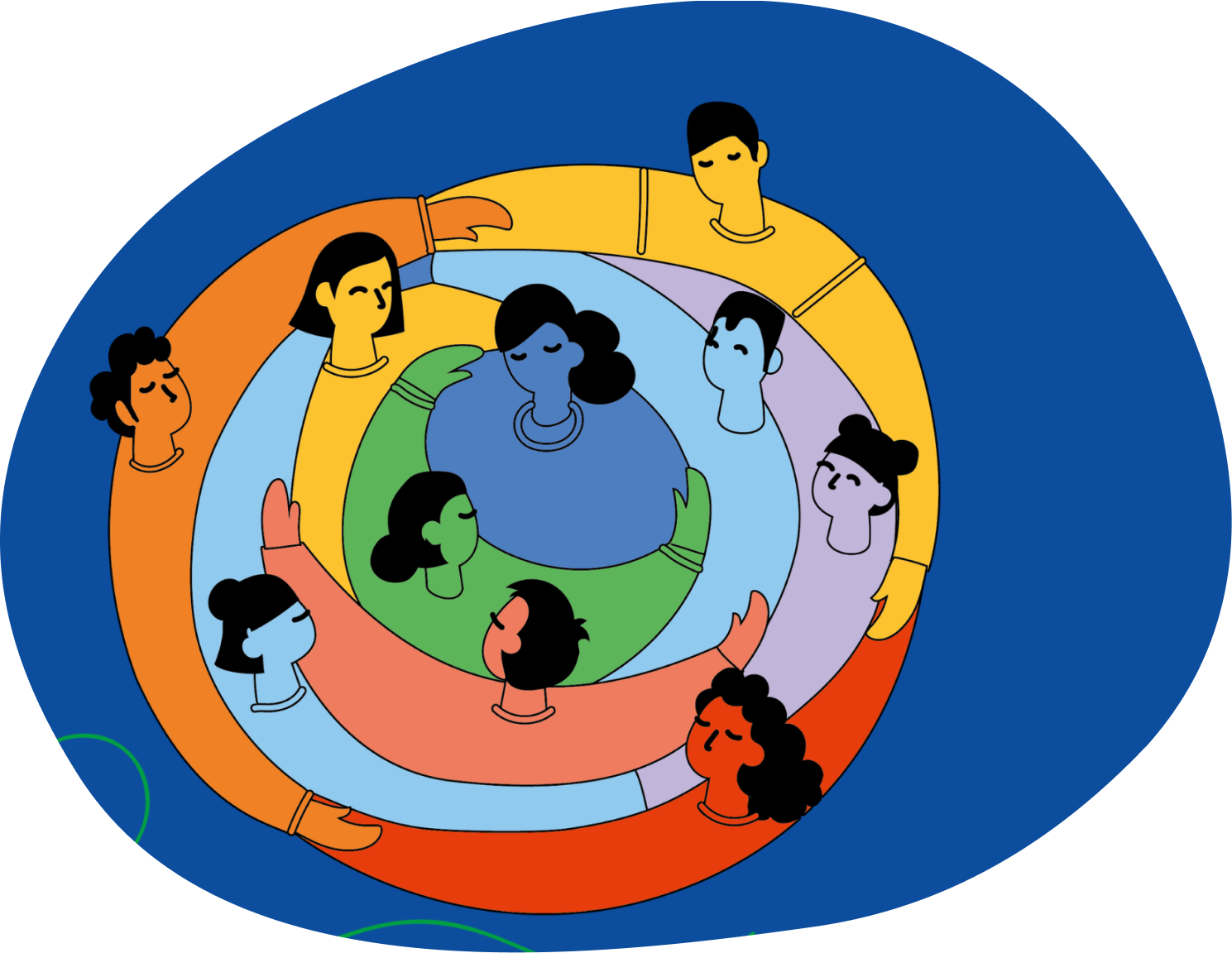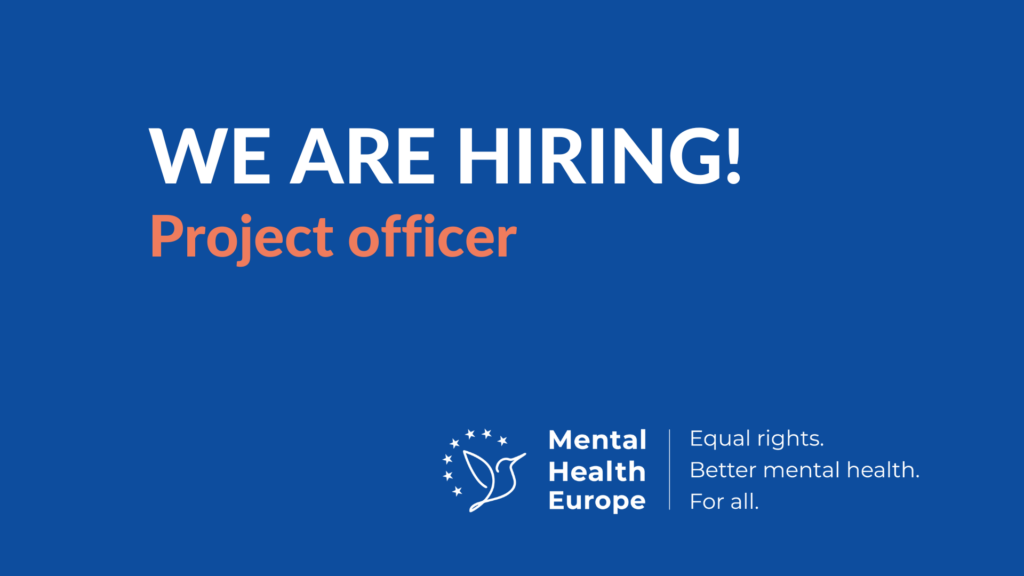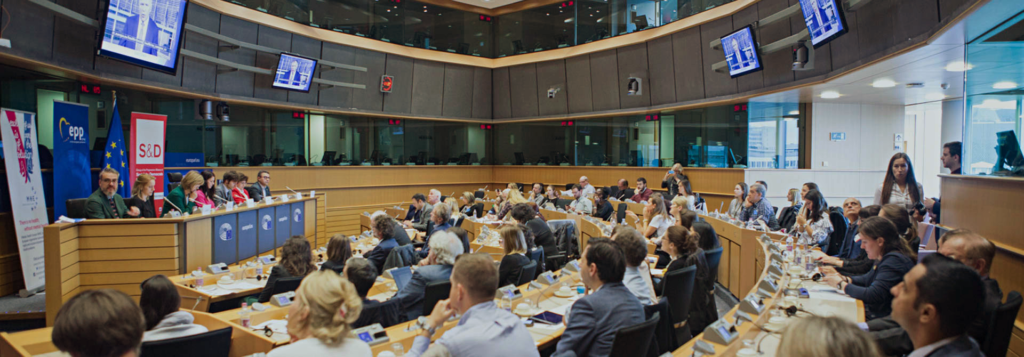

Equal rights. Better mental health. For all.
Mental Health Europe (MHE) is the main independent European non-governmental network organization committed to the protection of the rights of persons with psychosocial disabilities, the promotion of positive mental health, the prevention of mental distress, and the improvement of mental health care and social inclusion.

Areas of work
-
Human rights
-
UNCRPD
-
Human rights standards
-
-
Psychosocial model
-
Work and employment
-
Education
-
Digitalisation
-
Environment
-
Intersectionality
-
-
Campaigns
-
European Mental Health Week
-
Withdraw Oviedo
-
Each of us
-
Dove
-
Latest news

-
5 April 2024
Join our Youth Leadership Programme!
Mental Health Europe is looking for young people (18– 25 years old)... -
27 March 2024
Mental Health Europe is looking for a Senior Programme Coordinator
An interesting position to support the monitoring and co-ordination of the organisation’s... -
25 March 2024
Mental Health must remain a priority for the EU – a call to action.
A survey to help determine the EU’s priorities on health for 2024-2029... -
11 March 2024
European Mental Health Week 2024
We are thrilled to unveil that the fifth edition of European Mental... -
11 March 2024
Run for Mental Health 2024
Run with the Mental Health Europe for the Brussels 20K to raise... -
7 March 2024
Guidelines for Gender Inclusive Language in Mental Health
These guidelines address the influence of gender-related language on mental health and...
Stay connected
Get our latest news, personal stories, research articles, and job opportunities.



